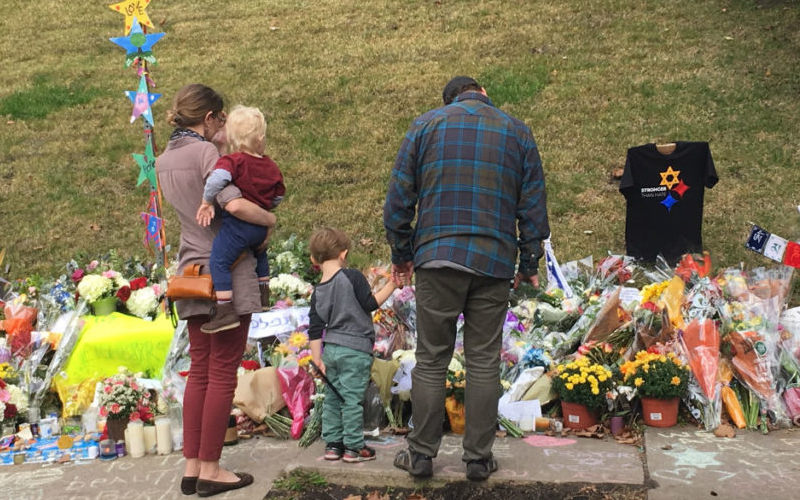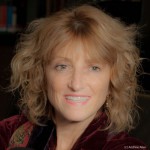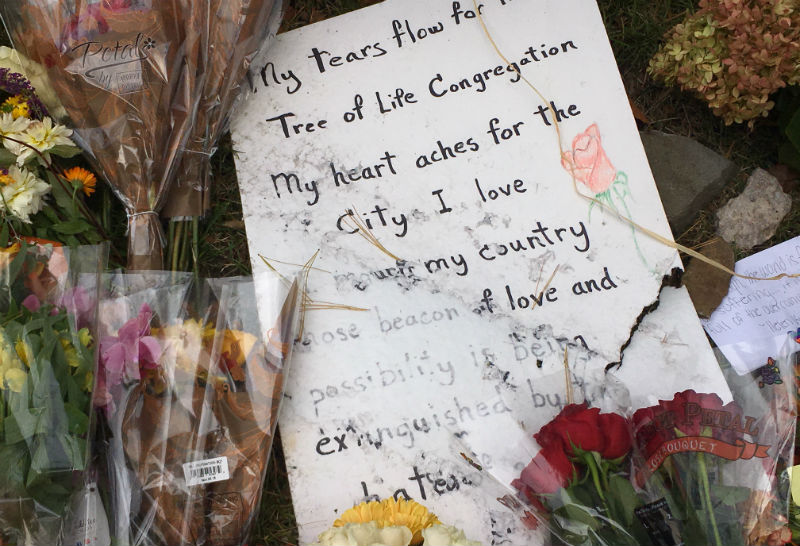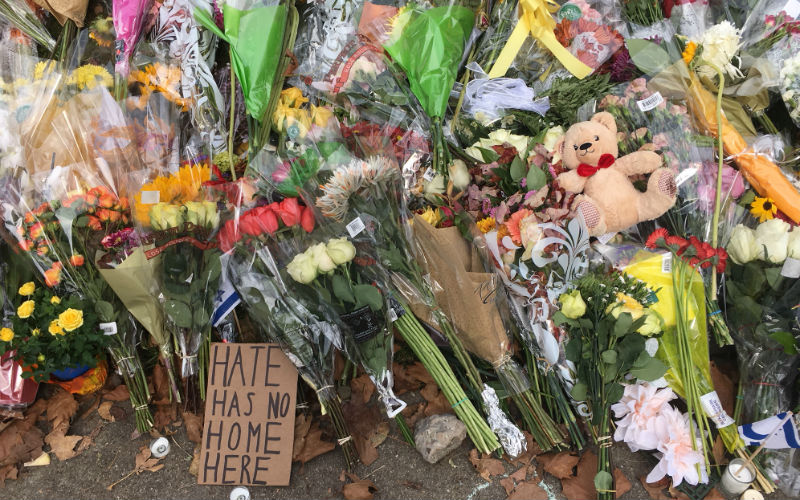Editor’s note: Since S.C. Poet Laureate Marjory Wentworth penned the moving piece below, there’s been another mass shooting of gun violence that left 12 people dead in Thousand Oaks, Calif. Photos by Andy Brack
By Marjory Wentworth, contributing editor | In 2016, the lawyers from the International Criminal Court asked me to write a poem for the 70th Anniversary of the closing of the military tribunals at Nuremberg. At the time, I was finishing writing the book We Are Charleston, Tragedy and Triumph at Mother Emanuel, immersed in the unfathomable grief of the families and survivors. Charleston was still recovering from one of the worst hate crimes in American history
The links between racism and anti-Semitism are innumerable. In fact, the NAACP has Jewish roots. The organization was founded by both black and white civil rights activists, including a Jewish man named Henry Moskowitz. Most recently, we all witnessed this horrific connection at the white supremacist gathering in Charlottesville, Va., in May 2017, and now there is Pittsburgh and the anti-Semitic motivations of Paul Bowers who declared that he “wanted all Jews to die.” Dylann Roof’s manifesto was filled with anti-Semitic and pro-Nazi rhetoric, and his intention in Charleston was to start a race war. Now, we are grappling with another mass shooting in a sacred space — another murderer radicalized on the Internet, another American city burying the dead.
I grew up in Swampscott, Mass., in a predominantly Jewish neighborhood. Some of the shops were closed on Saturdays and many of the cultural traditions were not something we practiced in our home. It was a neighborhood haunted by the Holocaust, and that deep wound permeated my childhood and my understanding of human behavior. And then in the 1980s, I moved to Charleston, a place also haunted by a cruel past. The unhealed wounds of slavery seemed to permeate the institutions here. I was not prepared for it.
David M Shribman, executive editor of The Pittsburgh Gazette, grew up in Swampscott, too. In a moving editorial published earlier this week he stated: “We knew it could happen here—any here, anywhere—when we learned that nine people were killed three years ago in the historic Mother Emanuel Church in Charleston, S.C….”
David and I lived in the same neighborhood, within walking distance of each other. David also lives in the Squirrel Hill neighborhood of Pittsburgh, just three blocks from the Tree of Life Congregation. This week, David reminded us that no American is immune from the danger of a mass shooter.
Not even first graders. Late on the morning of Dec. 14, 2012, my friend, poet Carol Ann Davis, sent me the following text: “The boys are ok, they go to a different school. Will call…” Although Carol Ann lives less than a mile from the Sandy Hook Elementary School, her children were spared. Because of zoning, they attended a different elementary school in Newtown.
I can’t be the only one who has friends in these communities impacted by mass shootings. I can’t be the only one who feels overwhelmed with the collective grief spreading across our country. I think of my husband’s film student who had worked with both the perpetrator and the victims at WDBJ in Roanoke when the shooter killed the reporter and cameraman on live television on Aug. 25, 2015. One month before that horrific murder, Jillian Johnson was murdered in a movie theater in Lafayette, La. She grew up with my husband’s best friend.
No one is safe anywhere in America. Not in our houses of worship, not in our homes, not in our schools, not in our movie theaters, not in our restaurants or shopping malls. According to the Gun Violence Archive, more than 12,000 Americans have been killed by guns in 2018; and there have been over 300 mass shootings (in which four or more people are shot).
We are living in a war that we have declared on ourselves.
I will never understand our need to blame “the other” for perceived problems, nor do I understand our capacity to abandon everything we know is right. How quickly and easily we tear the ties that bind us on to another as if they were made of air.
As I watch the citizens of Pittsburgh bury the dead and come together as a community, I recall the great love that I witnessed in Charleston in the days and weeks of that long hot summer of 2015. I am reminded of the Rev. Clementa Pinckney’s prescient statement made two months before his murder, “Only love can conquer hate.” Carol Ann Davis calls it heroic love.
And I go back to Nuremberg and what it stands for. It is the actions we take based on this profound love for one another that have the potential to change the future. Make no mistake, the murders at the Tree of Life Synagogue in Pittsburgh and Charleston’s Mother Emanuel A.M.E. Church, were hate crimes and crimes against humanity. What separates genocide from other mass acts of violence is the intention of destroying a group of people based on race, religion, ethnicity or nationality.
Nuremberg and the founding of the International Criminal Court reminds us that there can be justice. We can create mechanisms to hold people accountable that are international in scope. The American legal system is fully equipped to deal with white supremacist and anti-Semitic mass murderers like Dylann Roof and Paul Bowers. Roof, accused and convicted of hate crimes, has been sentenced to death many times over. Bowers has been charged with 44 federal counts, including hate crimes with a possible death sentence.
What sets Nuremberg apart is something deeper. It reminds us that our behavior must always be governed by our love for one another, no matter what our leaders say or do.
When our hearts our broken, we must hold onto one another and try to bring meaning to the unfathomable loss. Human beings must come together and create something new out of the ashes of our sins.
Although we may never understand the human capacity for evil, we can find ways to regulate hate speech on the internet without violating the First Amendment. We can change the gun laws in multiple ways that can insure safety of all our citizens without eliminating the Second Amendment. .
We can do better. Our lives depend on it.
South Carolina Poet Laureate Marjory Wentworth is the co-writer of We Are Charleston, Tragedy and Triumph at Mother Emanuel. She lives in Mount Pleasant.
- Have a comment? Send to: editor@charlestoncurrents.com







 We Can Do Better, South Carolina!
We Can Do Better, South Carolina!

























One Comment